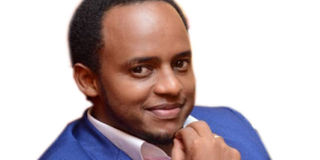Is govt desperately attempting to silence rights defenders?

What you need to know:
Lawlessness. Over the past three years, close to 38 NGOs have had their offices broken into in a similar manner and style, some leaving a trail of blood. Unfortunately, to date, not single case of NGO break-in has been conclusively investigated, despite pressure on government. Mind you, these NGOs are the second biggest employer in the country.
The coming to power of the NRM government in 1986 gave hope of a new dawn for the country where rule of law and democratic governance were previously unknown. It generated expectations from the populace, including human rights organisations.
In 1995, with the promulgation of a new Constitution, the Uganda Human Rights Commission was established, with the mandate to promote and protect human rights and freedoms in the country. One of the arguments behind its establishment was the recognition of Uganda’s violent and turbulent history that had been characterised by arbitrary arrests, detention without trial, torture and brutal repression with impunity on the part of security organs during the pre-and post-independence era.
Over the years that followed, a seemingly democratic practice took shape, allowing human rights organisations to emerge around many pressing human rights issues without major threats, and largely with government support.
The post-conflict humanitarian activity, for example in northern Uganda, was largely spearheaded by NGOs with full support from the government.
However, of recent, there has been a sharp decline in the guarantee of rights such as freedom of expression, peaceful assembly, and association. This has not only had a sharp effect on advances in civil political rights, but also economic, cultural, and social rights.
The NGOs that were once allies of government are now a threat, with government questioning their source of funding.
In a letter to the Speaker of Parliament following the age limit debate and debacle thereto, the President said human rights defenders (read NGOs), were proponents of imperial interests. The NGO criticism of government policies and positions has variously rendered them partisan in the eyes of the State.
NGOs are not meant to be partisan, but that does not negate their participation in civil and political rights debates that have an impact on the governance of the country. While the age limit debate took shape in 2017, NGOs that were actively involved in citizen engagement such as ActionAid, Great Lakes Institute for Strategic Studies, and the Uhuru Institute, became targets. Unknown to the state, ActionAid, for instance, was funding activities that stretched as far as support to Local Councils that had an impact on the welfare of the citizens.
Over the past three years, close to 38 NGOs have had their offices broken into in a similar manner and style, some leaving a trail of blood. Unfortunately, to date, not single case of NGO break-in has been conclusively investigated, despite pressure on government.
Mind you, these NGOs are the second biggest employer in the country and thus contribute enormously to the social economic transformation of the country.
Journalists working as rights defenders have also not been spared. At the height of the Arua by-election conflict, several journalists were caught between bitter contests of protesters and security organs. The UPDF, once heralded for their progressive record in combating torture, were at the forefront in battering and harassing journalists.
Human rights defenders are left with no option but to desperately establish strategies of resilience against adversity, and increasingly focus on the physical protection of individuals.
Serucaca is an advocacy and networking officer at National Coalition of Human Rights Defenders Uganda.
[email protected] |


